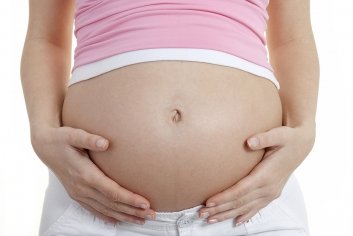- Varicose veins treatment in Kyiv
- Varicose veins treatment in Zaporizhzhia
- Edema and lymphostasis treatment
- Myths about varicose veins
- Massage and varicose veins
- Treatment of varicose veins with hydrogen peroxide
- Veins ache and pull blood vessels
- Can I treat varicose veins with pills?
- Treatment for varicose veins with leeches and bees. Benefit or harm?
- Is it possible to get rid of varicose veins with the help of gels and ointments?
- After 70 years, is it too late to treat varicose veins?
- Do mud baths help with varicose veins?
- Is it possible to get rid of varicose veins with compression knitwear?
- If you make an "open" operation - varicose veins will never appear again. Is it so?
- Are ugly scars and scars left after the operation to remove varicose veins?
- Is varicose veins treatment a long and painful process?
- Is it possible to get rid of varicose veins completely and forever?
- Varicose veins cannot be treated in the summer. Is it so?
- Do you need to go to a surgical hospital for vein surgery or not?
- After removal of varicose veins, the load on healthy veins increases. Is this so?
- Is it possible to play sports after surgery to remove varicose veins?
- Only the elderly suffer from varicose veins?
- Wearing compression hosiery causes muscle atrophy or not?
- Remove veins or not?
- How is the outflow of blood after vein removal?
- Thrombophlebitis treatment
- Nonresident patients
- All about varicose veins
- The risk of complications of varicose veins | Trophic ulcers and no panic
- Causes and symptoms of varicose veins
- Diagnosis of varicose veins
- Stage of development of varicose veins
- Gymnastics and prevention of varicose veins
- Diet for varicose veins
- Why is varicose veins dangerous?
- Treatment of varicose veins of the lower extremities
- Varicose veins and pregnancy
- Varicose disease - what will happen if not treated?
- Varicose symptoms
- Complications of endovenous treatments
- Post-thrombotic disease
- What is phlebology?
- Complications of varicose veins
- All about sclerotherapy
- Vascular diseases
- Treatment results in AngioLife
- Questionnaires and tests for patients and doctors
- For doctots
- Public contract
Varicose veins and pregnancy
- Home
- All about varicose veins
- Varicose veins and pregnancy

The period of pregnancy and the birth of a child is one of the most beautiful and memorable moments in the life of every woman. It is during pregnancy that very often the first signs of varicose veins appear, and after childbirth they begin to progress rapidly. Why is that? Hormonal changes in this period of life have a positive effect on the woman’s body, but pregnancy does not always "proceed" smoothly. The same hormones that improve metabolic processes in the body can complicate the work of other organs and systems. The connective tissue undergoes the greatest changes. This can cause various problems: lower back pain, the appearance of "stretch marks" on the skin of the chest, thighs or abdomen, flat feet.
According to world statistics, approximately 50% of women during the first pregnancy appear with a vein expansion - varicose veins. With repeated pregnancies, this percentage increases.
The main causes of varicose veins during pregnancy are:
- "Powerful" hormonal changes in the body of a woman (an increase in the amount of the hormone progesterone), which can contribute to the weakening of the venous wall and venous valve insufficiency;
- as the baby grows, the size of the uterus increases, which exerts pressure (compresses) on the inferior vena cava (the main vein in the abdominal cavity), as a result of which the outflow of blood from the lower extremities slows down and venous congestion occurs (a very common cause of leg swelling in pregnant women)
- due to an increase in the uterus, the volume of circulating venous blood increases (up to the ninth month of pregnancy almost twice), which leads to an increase in venous pressure (primarily in the inferior vena cava, pelvic veins and veins of the lower extremities)
What is the danger of varicose veins in pregnant women?
Nature made sure that during the birth the mother did not lose too much blood. For this, during pregnancy, under the influence of hormones, the blood becomes thicker. Blood clotting and venous congestion with varicose veins significantly increase the risk of small blood clots called thrombi in the veins of the legs.
The most formidable complication of varicose veins during pregnancy is thrombophlebitis (inflammation of the venous walls with the formation of blood clots in the lumen of the vein). This complication is dangerous for both the expectant mother and the baby, and very often, with the development of thrombophlebitis in pregnant women, urgent (emergency) surgical intervention is necessary (crossectomy - ligation of the mouth of the great saphenous vein).
Treatment of varicose veins in pregnant women is a very complex and highly specialized area in vascular surgery, and this should not be limited to consultations with obstetrician-gynecologists or general surgeons. In order to avoid all the adverse manifestations of varicose veins during pregnancy, with the slightest suspicion of varicose veins, it is worthwhile to consult a vascular surgeon and / or phlebologist, undergo an ultrasound scan of the veins of the lower extremities (a harmless research method), choose a preventive compression knitwear and determine the characteristics of labor management.
- ANGIOLIFE at the UVS Congress - Sukharev Readings 2025
- Diagnosis, clinical and treatment of varicose veins
- Thromboangiitis obliterans, Buerger's disease and Endarteritis
- Тромбофлебіт та тромбоз поверхневих вен
- ANGIOLIFE on aspects of phlebology 2024
- Is it possible to treat deep vein thrombosis without anticoagulant therapy?
- UVS 2024 CONGRESS "SUKHAREV READINGS"
- Varicose veins
